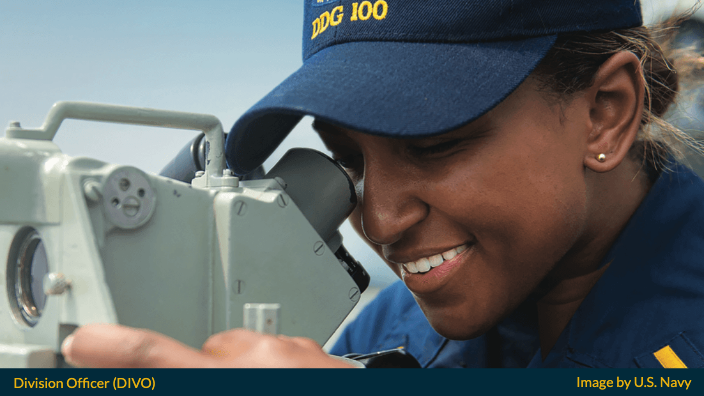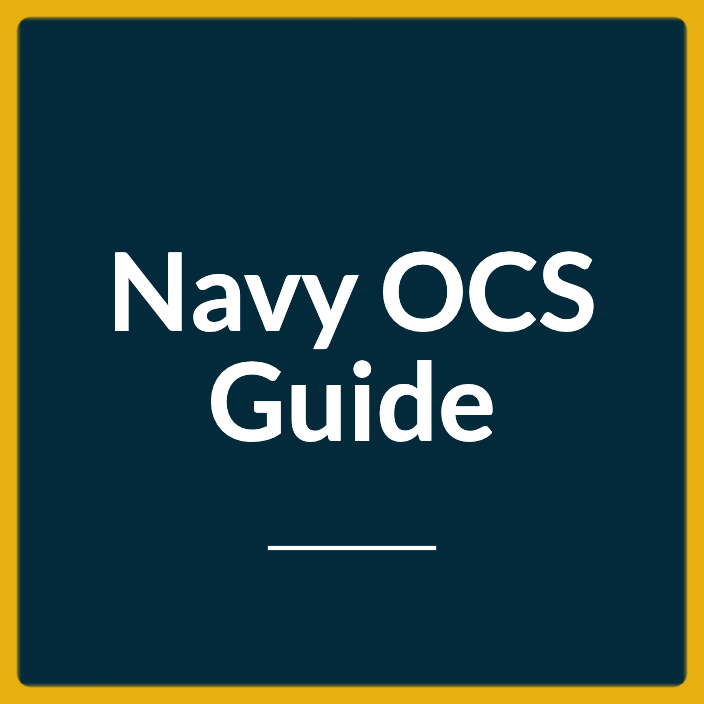A Navy Division Officer does a lot more than the title suggests. This role is all about leadership—managing a group of enlisted sailors, keeping daily operations on track, making sure training happens, and looking after the well-being of the team. The mission depends on it.
Getting there takes education, training, and hands-on experience. It’s not an easy job. It demands sharp decision-making, strong leadership, and the ability to communicate clearly under pressure.
This breakdown covers what it takes—responsibilities, qualifications, and career paths. Whether you’re thinking about joining or just curious, here’s what you need to know.
Who is a Division Officer?

A Division Officer (DIVO) in the Navy is a mid-level management position held by a commissioned Navy officer.
They lead and manage a specific group or “division” within a ship, squadron, or shore-based unit.
Generally, a Division Officer holds the rank of Ensign, Lieutenant Junior Grade, or Lieutenant.
Division Officers are important to the Navy because they are the glue that holds the organization together.
They build teamwork, ensure safety, and provide direction to their sailors.
The Responsibilities
- Personnel Management: Overseeing the welfare, discipline, and professional development of the enlisted personnel within their division.
- Operational Management: Planning and executing specific tasks for their division, ensuring that operations align with the overall mission.
- Administrative Duties: Managing records, reports, and correspondence for the division.
- Equipment Maintenance: Ensuring that all equipment under the division’s purview is operational and in good condition.
Qualifications
To become a Division Officer, you typically need a Bachelor’s degree and must complete the Officer Candidate School (OCS). Other commissioning paths, like Naval Academy or NROTC, also prepare you for the role.
Once you check-in to your first command, you must complete the Division Officer Leadership Course (DOLC). This is a two-week course designed to teach you the basics of personnel management and naval operations.
You will also have to attend professional development courses from time to time, such as Advanced Naval Leadership and Management or Shipboard Damage Control Training.
Newly assigned Division Officers must complete a Personnel Qualification Standards (PQS) upon taking over the role.
Why the Role Matters: The Backbone of the Navy
The Division Officer is the link that holds Navy operations together. They keep the chain of command tight, making sure enlisted sailors and senior leadership stay on the same page. When they’re effective, missions don’t just get done—they get done right.
They work side by side with the Chief’s Mess, the ones who manage enlisted personnel day to day. That partnership isn’t just important—it’s what makes the system work.
Strong leadership starts at this level. A Division Officer sets the tone, and the unit follows. If they lead well, the team performs. If they don’t, everything suffers.
Division Officers on a Destroyer: An Example
On a Navy Destroyer, you will typically find several Division Officers in charge of different sections. These are some of the key Division Officers you would encounter:
- Operations Officer (OPS): Responsible for managing the ship’s navigation and CIC (Combat Information Center).
- Weapons Officer (WEPS): Manages the armament and weaponry systems.
- Engineering Officer (CHENG): Oversees the mechanical and electrical systems, ensuring they’re in operational condition.
- Supply Officer (SUPPO): Takes care of provisioning, food service, and financial transactions.
- Communications Officer (COMMO): Manages the ship’s internal and external communication systems.
- Damage Control Assistant (DCA): In charge of the ship’s damage control and firefighting efforts.
- Electronics Material Officer (EMO): Handles the electronic systems and their maintenance.
Each of these officers plays a crucial role in ensuring the destroyer is always mission-ready.
The Path to Becoming a Division Officer
Education and Training
- Bachelor’s Degree: A 4-year degree from an accredited institution is required. Some specialized roles may require specific degrees.
- Officer Candidate School (OCS): A 12-week program designed to train future officers.
- Specialized Training: Depending on the specific role, additional training may be required, such as attending Surface Warfare Officers School.
Career Advancement
After serving as a Division Officer, the next step is a Department Head position, leading multiple divisions.
Further advancement can lead to roles like Executive Officer and, eventually, Commanding Officer.
A successful DIVO tour is a great foundation for climbing the ranks in the Navy.
Day in the Life of a Division Officer
Ever wondered what a typical day looks like? Here’s a snapshot:
- Morning Briefings: Catch up with senior leadership and outline the day’s tasks.
- Operations: Lead the team in executing assigned duties.
- Training: Conduct or supervise training sessions.
- Administrative Tasks: Paperwork, evaluations, and communications.
- Evening Debrief: Summarize the day’s achievements and set objectives for the next day.
The Challenges and Rewards
The Tough Stuff
- High Stress: Division Officers often work long hours and must make quick decisions.
- Personnel Management: Leading a diverse group of personalities can be challenging.
The Payoff
- Leadership Experience: Few roles offer such immediate leadership opportunities. DIVOs usually have a lot of responsibility and are expected to set an example for the entire crew.
- Job Security: The role is essential, offering long-term career potential. This position offers the opportunity to progress up the ranks of the Navy.
- Skill Development: The variety of tasks and responsibilities ensures you’ll never stop learning. The skills you learn as a DIVO will be invaluable for the rest of your career.
Is this for you?
Not everyone is built for this. A Navy Division Officer needs technical expertise, strong leadership, and the ability to make tough calls without second-guessing.
The payoff isn’t just a salary. This is bigger than a job—it’s a mission, a commitment, a place where what you do matters.
If the ocean calls and leadership fuels you, this is your path. The demands are high. The rewards stay with you forever.

